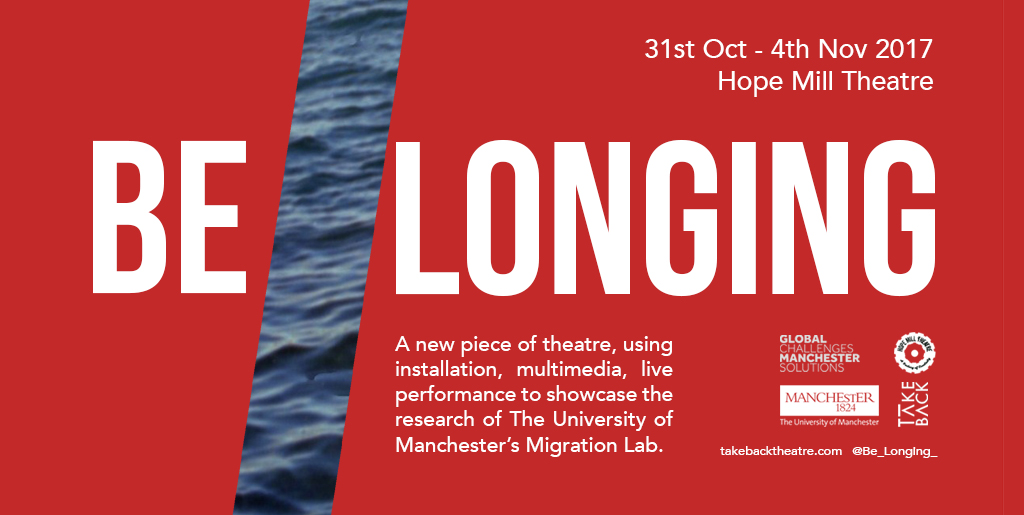By Caroline Boyd, Global Inequalities Campaign Manager (Research Beacon)
When research provides you with human stories as emotive and keenly felt as those gathered by the 70+ researchers in the University’s Migration Lab, communication is not the biggest challenge. Instead drawing together and doing justice to the wide variety of experiences and stories is the daunting task.
So how could we clearly raise awareness of the range of Migration Lab researchers and their work which encompasses migration’s sociologic elements, humanitarian aspects, the legalities of moving country, the linguistic challenges and prejudices that many face as they move from one place to another? Theatre.
The University of Manchester’s Global Development Institute and the Humanitarian and Conflict Response Institute joined together to stage a five night sell-out performance entitled Be//Longing at Hope Mill Theatre in Ancoats. To create the performance we commissioned the brilliant Take Back theatre collective, a highly creative and political outfit comprising writer Rebekah Harrison, visual artist Grant Archer and actor Julie Hesmondhalgh. The performance was based on a workshop where 10 of our researchers helped Take Back translate the complexities of their work into a single show.
From Tuesday 31 October until Saturday 4 November, over 300 members of the public attended the immersive theatre event. As the public walked around Hope Mill they listened to audio case studies from University research which were transformed into moving monologues. There were telephone booth art installations to hear these stories first hand and a van outside the theatre entrance blared out news reports relating to migration.
Communication comes in many forms. Research covers many areas. But by using the medium of theatre, we strived to convey the everyday realities and impact of migration to the general public in an inner city space beyond our university campus. The impact of our research and this performance will continue as many charities, theatre goers, activist and policy makers who attended left the space with increased knowledge, ideas and resolve to address the inequalities and injustice faced by so many who migrate.
- Read a Guardian piece about the Be//Longing performance by Julie Hesmondhalgh.
- Watch an excerpt from the performance.

